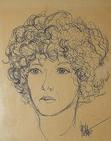N.L. Brisson's Blog, page 4
May 16, 2024
Revolution Song: The Story of American Freedom by Russell Shorto – Book

From a Google Image Search –
Some books get under our skin, and we credit the author for being such a spellbinding writer. We become a fan, and we want to read every book that author has written and any future books s/he writes. That is what happened to my friend when he read Revolution Song: The Story of American Freedom by Russell Shorto. He was so excited that I agreed to read Shorto’s book. Not long ago I read George Washington: A Life by Ron Chernow so I expected that I would just find Shorto covering familiar ground. But the Chernow book was published in 2011 and Shorto’s book was published in 2018. The latter book is informed by a whole lot of recent political scrutiny.
Shorto’s history does not just cover the role of George Washington in the American founding. He invites some less well-known Americans into the mix (along with a few Brits and Washington’s great friend, Lafayette, a Frenchman).
We follow a slave stolen from his native land and brought to America, going by his slave’s name, Venture, until he finds his way to freedom, the raison d’etre for the Revolutionary War, and a common thread among the characters Shorto chooses to tell us about. It is a long time before most African Americans achieve freedom.
We follow a Native American, member of the Six Nations, Cornplanter, who treats with leaders who are French, British, and American and who temporarily finds his little piece of freedom.
Margaret Coghlan stands in for all the women whose freedom was ignored in this war for freedom and individual liberty.
“Margaret Coghlan felt this pull of freedom that was in the air in the eighteenth century, but she realized, too late, that it did not apply to half of the human race. History does not record what became of Coghlan’s children, the poor waifs she dragged around with her as her tragic life wound down, but her ideological descendants span the history of the women’s movement, from Elizabeth Cady Stanton to Gloria Steinem, and for that matter includes people like Amelia Earhart, Ellen DeGeneres and every woman who broke a gender barrier.” (p. 506)
Abraham Yates was a conservative who felt that America should be a loose affiliation of states without a strong federal government. He began with almost nothing and had to work very hard to win whatever personal power he could fight his way for in society. He eventually became a lawyer and then a public servant and he had gathered enough clout to be included in the constitutional convention to rewrite the Articles of Confederation. He had better reasons to back state’s rights than slave owners had, but George Washington and his rival Alexander Hamilton favored a strong central government, taxation, and a federal bank. Yates was able to force the inclusion of the Bill of Rights in the US Constitution.
Our founders saw the mismatch between promising to honor the belief that “all men are created equal” and the belief of many slave owners that slavery was necessary for the economy and that black men were savages and therefore not equal to white men. No one even considered for a minute the rights of women. Some of the founders worried that this lie at the heart of our governmental philosophy (that all men are created equal) would one day destroy the nation.
“At the outset of the war they had gotten a proper scare when news reached them that hundreds of slaves in Jamaica had attempted an uprising. Even more troubling, the Jamaican slaves had apparently been inspired by the very ideals of freedom that Washington and his fellow rebels proclaimed. The Jamaican rebellion had been crushed, its leaders executed and either burned alive or had their bodies displayed as a public warning. For a man like Washington, the affair underscored the dangerous double-edged nature of the ideology the Americans espoused. Uprisings were a nightmare that all southern slaveholding families lived with. To give weapons to people they had been systematically abusing for generations was beyond his comprehension. Freedom was what Washington was fighting for, but not for them. Not now. It was an irony, an incongruity, a flaw in the American project of bringing true individual liberty into being: he did not deny that. But he couldn’t solve it. He was not a philosopher. (p. 352)
We are still dealing with the aftermath of this founding dilemma, and it seems to be tearing the nation apart even though slavery is no longer legal. Racism, the news shows us, is still alive and well in America to our shame and it may yet end our long flirtation with liberty.
Washington was also conflicted about whether America should have a strong central government or give autonomy to the several states. We are still fighting out which of these governmental designs would offer the most freedom and individual liberty. Washington chose to use his reputation and fame to back a strong central government, but he was not at all sure that it was the correct choice.
“In June, Washington wrote a circular letter “to the army,” but really to the leadership of the state governments. He had spent the entire war enraged at Congress’s mismanagement of finances and the underfunding of the army. There had been a power vacuum in the American government throughout the war; now it threatened to open into a chasm. In the letter, he expressed his happy astonishment that what they had fought for had actually been achieved: that Americans were now “possessed of absolute freedom and Independency.” But he stressed that the structure for maintaining that freedom was lacking. Taking his cues from Madison and Hamilton he suggested that what was needed was “an indissoluble union of states under one Federal Head.” This required that the individual states “suffer Congress” to exercise authority. Without this “everything must rapidly tend to Anarchy and confusion.” (p. 402)
Washington shows his prescience when, as the author reports, he says,
“Sounding much like Yates, Washington said he now saw that periods of turbulence would “gradually incline the minds of men to seek security & repose in the absolute power of an Individual and sooner or later the chief of some prevailing faction more able or more fortunate than his competitors, turns this disposition to the purposes of his own elevation on the ruins of Public Liberty.”
My friend was right. Russell Shorto’s nonfiction book was a worthwhile addition to books that cover the era of the American Revolution, and it is important because it discusses the challenges we face right now as we decide anew whether to choose freedom, even if it is only relative freedom, over autocratic rule. (Even those unusual characters in Shorto’s book are real people and there are documents that tell the stories of their lives, with attributions given in the end notes.)
[John McHenry’s journal echoes Washington’s statement, “A Republic, if they can keep it.”]
April 18, 2024
2054 by Ackerman and Stavridis-Book
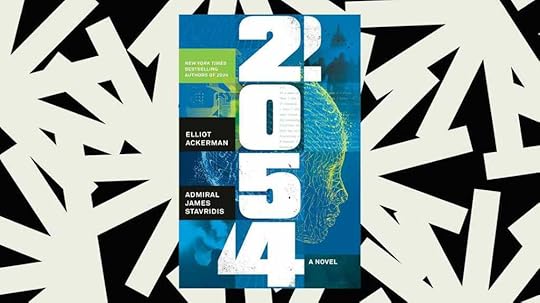 From a Google Image Search – NPR
From a Google Image Search – NPRElliot Ackerman and James Stavridis have written a book about the future with the title 2054, a follow-up to their book 2034. The government in America is divided between two dueling parties, the Truthers and the Dreamers, that I had difficulty differentiating. There is also an ancient obstructer in the Senate named Wisecarver, who might remind you of Mitch McConnell. To please both factions the President and Vice President are not from the same party. A Civil War seems to be brewing.
President Castro, a seemingly healthy middle-aged man, dies suddenly of a heart attack. After examining the President’s heart there are indications that it has been genetically edited. This is not the same heart that the doctors have examined in the past. Has someone figured out how to edit genes from a distance? Has someone managed to create the Singularity? Can humans and computers now merge? Why does anyone want to pursue the Singularity when the technology carries with it a strong possibility of human extinction? President Castro was not a popular figure, and he is soon replaced with President Smith, previously Vice President Smith. Divisions escalate.
Besides what is going on in the government of America there is a cast of characters who are involved with gene editing and who are trying to trace down those who were working on this science and on the Singularity. Sarah Hunt who has recently died or disappeared is a key figure although we are left with her daughter Julia Hunt because most people believe that Sarah Hunt is dead. Julia, who has been working in the government is also a marine, who is sent back to her barracks under the new administration. We have BT and Michi in the hunt for Dr. Kurzweil, and we have Lily Bao, involved in a secret relationship with Nick Shriver, the new Vice President, but also pursued by Zhao Jin of China who wants her to come home. We also have Ashni traveling with her dad. She is trying to find Dr. Kurzweil because he is the last hope for keeping her father alive. Several groups set off at the same time to find Dr. Kurzweil who has retreated into isolation and who has been working on both gene editing and the Singularity.
This is a good story, but it is quite complicated and just reading it makes more sense than trying to explain the plot twists. What makes the book interesting is the relevance to currently trending topics and situations. Although I found it to be all plot and little substance some of the characters did connect with me well enough that I was interested in what was happening to them. The ending surprised me and perhaps it will surprise you too. This is a book to entertain you on a quiet Sunday afternoon or a sleepless night. The authors weigh in on whether we should try to create the Singularity.
April 13, 2024
Wandering Stars by Tommy Orange-Book
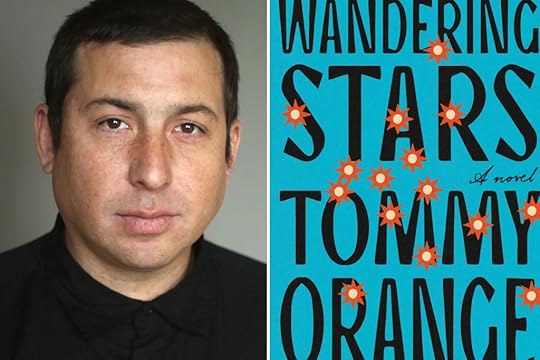
From a Google Image Search – MPR News
Tommy Orange continues the story of the Red Feather and Bear Shield offspring from his book There There in his new novel Wandering Stars. We have already learned of the Trail of Tears from history class (maybe). We are removed in time from these sorrowful events, but we still bear the shame of our ancestors’ cruelties. Jude Star’s story opens the novel as the most distant traceable ancestor of the children in this story.
We are reminded that wars are always cruel and colonial wars are even crueler because they will always erase or reduce the powers of one party or the other. Jude Star ends up in a prison-castle in Florida from which he eventually escapes. Jude and Hannah Star’s son Charles Star and Opal Bear Shield have a daughter, Victoria Bear Shield. From one partner Victoria gives us Opal Viola Victoria Bear Shield, and from another partner Victoria gives up Jacquie Red Feather, the grandmother of the four children in the Red Feather clan who are being cared for by Opal Viola Victoria Bear Shield who is not their grandmother but who shares a mother with Jacquie.
Orvil, our focal character, has recovered from being shot by a terrorist. This happened the first time he went to a Native American celebration where he danced in public. Of course, even when you physically recover from a near-death experience, your spirit may not heal. It could take time, or it could be psychologically fatal.
Jude Star is the name chosen for Orvil’s ancestor when he is imprisoned in Florida and attempts are made to force former member of tribes to “assimilate” and forget their traditional lifestyles and beliefs. The Star men are wanderers who cannot find their place in an America captured by white folks, white folks who cannot see a way to live beside the people they fought with over this land.
Opal, who now heads Orvil’s family, has changed the fate of the Star offspring. She has purchased a house in Oakdale, California where Orvil, Loother, and Lony can find some stability as a created family. The grandmother Jacquie lives nearby and helps when she can. Opal pays tuition to send Orvil to a good school. The family is about to learn that stability is always in danger from outside forces over which they have little control. Orvil needs pain meds. He is on opioids for pain but when they are no longer prescribed, he must find other sources. He is addicted. This leads the whole fragile little family down a sad path that makes it hard to believe that even the best of intentions can turn some lives around.
Things turn out better than you might ever think, but the family loses its nascent cohesiveness. Colonialism has consequences and Tommy Orange wants us to know that.
Tommy Orange’s books have a historical and cultural significance quite apart from their literary bona fides. They are authentic expressions of a person and a people trying to preserve their culture whose values were expressed by the way they lived lightly on the earth and by rich spiritual traditions. Placed alongside the materialism and power struggles of a culture that is so antithetical to the lived beliefs of America’s indigenous people the contrasts and challenges are clearly exposed in Orange’s novels. Here is a young voice we don’t often hear from illuminating the torn souls of a proud people or set of people with much to offer, especially the way to live lightly on the earth part.
March 21, 2024
The Fetishist by Katherine Min – Book
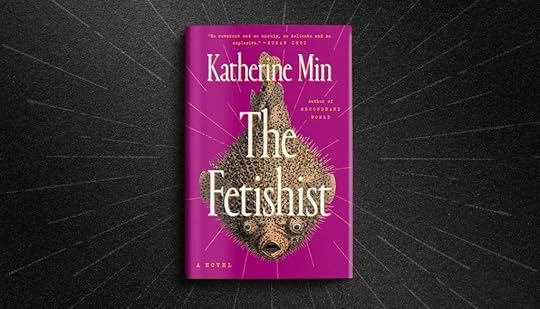
From a Google Image Search – Barnes and Nobel
Picking the next book to read is often problematic, a momentary panic sends me back to my book lists scribbled casually in notebooks full of political research, budget info, wordle episodes, drafts of essays, and wish lists. So many tantalizing titles are published each year that my list often leap frogs on to the newest releases without ever finishing with the older lists. There is always guilt and regret. Sometimes I wish I was a Large Language Model filled to the brim with all the world’s great literature and turned into a more well-rounded individual through a corresponding grasp of math and science. I read by instinct and thankfully there are so many excellent choices that I am rarely disappointed.
I stumbled upon Katherine Min’s book The Fetishist and once again I was not mislead by my instincts. This is a book for grownups. The book was published posthumously by Katherine Min’s daughter. The content is sophisticated and serious; fantastical and funny. Alma is sometimes the narrator and always the main character. She was a famous cellist who toured worldwide and sat in the first chair in global orchestras. She started playing at the age of 5 and by 11 she was obsessed with the cello.
“It was very physical, more like dancing than playing an instrument, and all her life Alma had felt this weirdly mystical space, the notes like steps, like gestures, the music like breath, like breeze, and the feeling of wide-ranging freedom, of expanse and embrace, and of always ending up somewhere else.” (p. 38)
Alma has MS and can no longer play the cello. Her body betrays her. Her fame is real, but it is a thing of the past. She has plenty of time to think back over her life. Alma fell in love with Daniel, a charming man, a fellow musician, and a womanizer. Daniel had commitment issues. Daniel also gets to narrate at times. Daniel, on an impulse, bought Alma an engagement ring, proposed, and then got caught by Alma doing the deed with Emi, another musician, another Asian musician. Daniel and Alma were engaged for about 5 minutes just before Alma had a very public medical episode that ended her life as a cellist.
“…and because being in a coma means having a lot of free time on your hands and the vagaries of the human brain are such that you never know what will pop into your head at any given moment. Alma finds herself surveying the fetishists she has known over the years. Ri-i-i-sssss kkk-iii-nggggs, rice chasers, Asiaphiles, victims of that mysterious disease known as Yellow Fever. Every Asian woman knows the generic type, but Alma, classical musician, world traveler, and unconscious taxonomist, breaks them down into three categories. 1) The cultural ambassador, 2) The carnal colonialist, 3) The rational revolutionary. (These are covered in more detail.)
A parade of rice kings wherever she went lecherous, treacherous, beseeching–enfolded like origami, bent like bonsai, draped in silk, and embellished with hanzi–presenting themselves like gifts to a foreign bride.” (pp 77-80)
This is the meat of the matter and there is more. Does Daniel pay for his sins? Revenge for Alma was banishment, cutting Daniel off, but her MS weakened the gesture as she no longer felt desirable. Someone else takes on the revenge of Daniel as his past leads to the most unusual kidnapping and Daniel’s mental reckoning. Kornell and Kyoto have their reasons.
This book is a literary gem, while offering an activist view against “Asiaphiles” who have given us terms like “Tiger Lily, China Doll, Geisha Girl, Baby-san, Miss Saigon, Suzie Wong, Me Love You Long Time, Goddamn Madame Butterfly!” (p 80) How you make a book with an axe to grind into a humorous and classy adventure is by being a talented writer; a writer who will entertain us no longer. This is our loss. Books, like music, take us “somewhere else.”
March 20, 2024
The Blueprint by Rae Giana Rashad – Book
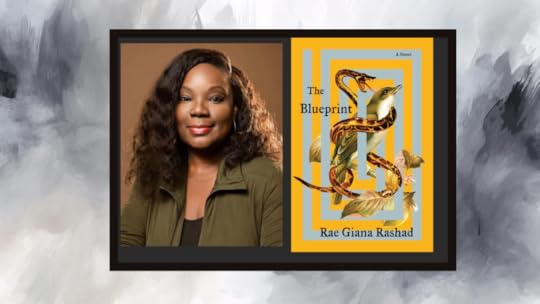
From a Google Image Search – Paper Literary
Imagine if Martin Luther King never existed, or if the Civil Rights movement came too late to prevent a second Civil War. It’s not hard to imagine if you just find old videos of Strom Thurmond on You Tube. In Rae Giana Rashad’s book The Blueprint, we meet Solenne and Bastien, who sound like characters in a romance book. But this is no ordinary romance. Bastien is a Councilman headed to become President of the new America known as The Order. Solenne is a young Black woman, fifteen years old, headed to become a ‘concubine’. Since this book is written by a Black woman, I will use her words to offer insight into her story. In the Author’s Note, Rashad refers to female slaves in real America as “forgotten handmaids,” so here is another handmaid’s tale, every bit as chilling as the original, except it explains how Atwood’s tale of the handmaids is even more fraught for Black women.
Page 13
“Then he was gone, ballroom lights tunneling the dark, the hush of champagne on my tongue. THE PATH WE WALKED TO BECOME Black women wasn’t straight; it was a loop. Starting from nowhere, it brought you back to nowhere. A man at one end, a man at the other, humming the same song. ‘It’s just a body. Nothing special.’ If that were true, why did they want it? Why couldn’t it belong to me.”
Page 25
“I would never know how it felt to walk boldly because this world wasn’t mine…There was no protection for me, a Black girl, no tender touch, no consideration for a delicate exterior. No space to scream.”
Page 31
“They bragged about their accomplishments in private, boasted about the difference between them and their brother. But skin quality and quantity of sleeve emblems aside, from neck to ankle, the men were identical.”
“Councilmen were the Order’s most decorated men. The talented, skilled, brilliant. Engineers, physicians, cryptographers, developers. But fundamentally they were soldiers. Killers.
Page 104
“And still, this country is better than it was when it was the United States. An economy outpaced by the rest of the world, the racial unrest, the increasing crime and abortion rates, no, we couldn’t go on with so much death.”
Page 133
“From his frame above the fireplace, Thomas Jefferson watched me. What had Sally seen in him? He brought her to France at fourteen, where she worked, lived, and earned money as a freed woman. When he decided to return to America two years later, she didn’t stay like the French urged her. She returned to America, where she remained enslaved, and the babies followed like footsteps.
Page 214
“Seven years of militias, fragmented state governments, and millions of deaths. We’re fortunate the Founders of the Order had a vision for the country. Their sacrifice ended the war.”
(Solenne’s great-grandfather wounded, and in the hospital, talks about that war and the aftermath.)
“In that unseasonably warm January of 1960 in Metairie, Louisiana, he witnessed a military dictatorship seamlessly replace the civil government. Where did these men come from, he asked his nurse. She couldn’t have been more than thirteen. Nobody knows, she said. They came from nowhere. But that wasn’t true, they were military officers police officers, senators, governors, a World War II veteran like Bastien’s grandfather. While my great-grandfather slept, Black and white men stood in offices letting the ink dry on treaties. In those documents women had fewer rights than they did before the war, and Black women caught the worst of it.”
[Black men were given the state of Louisiana as a free state, but they had to relocate by 1962 or accept the new Constitution]
Page 249
“They knew that once you get that taste of freedom nothing will keep you in line. Lucas [Bastien’s rival] knew it. I’d already seen the sunset over Sanibel Island in pink and orange. Seeing something like that makes you feel like somebody created something just for you. It was like unwrapping a present every time I blinked. I wanted to keep it forever. Not a piece of it. All of it.
Page 277
“Pleading. This was the only system designed for us. We were girls, fifteen, sixteen, seventeen. We were our ancestors, forbidden to read or write while lying under the arms of men who drafted legislation.”
Page 293 Author’s Note
“It was difficult to read these stories of forgotten handmaids and their forced reproduction. Though the United States outlawed the international slave trade in 1808, slaveholders found a way to increase the slave population by exploiting the domestic slave trade. They forced Black women into men’s beds, punishing those who didn’t have multiple children by their teens and rewarding those who did.”
Who wins, Bastien or Solenne? Find out how they both win, and both lose. Clearly this book connects to the America that we live in now, in 2024. There is talk from time-to-time about the possibility of a second Civil War when discourse heats up or when rights are lost. Women’s rights recently experienced a setback in the Supreme Court, a setback that will figure in the upcoming election and that could escalate depending on the results of the next election. The fears of Black women, that they might become “concubines” if the right-wing wins must be quite real and harrowing. Throughout Rashad’s story of Solenne, she is writing a book about a slave from 100 years ago, Henriette (Kumba) drawing parallels between the two women’s lives, reminding us that Black women are not property or sexual objects and warning us about the dangers of allowing racism to rule ever again.
I feel a kinship to Rae Giana Rashad because I wrote a similar book about losing freedoms if America becomes an authoritarian state. She did a better job than I did since she had to create all her characters from scratch, and I used both real and fictional people. My attempt in this genre is entitled 2028: The Rebellion. Rashad is offering fair warning to everyone. You should read the book.
March 11, 2024
The Fox Wife by Yangsze Choo-Book
 From a Google Image Search – NPR
From a Google Image Search – NPRChina is an ancient land with some ancient superstitions leading to tales to tell, either delicious or horrific depending on the storyteller. Although we are wary of foxes here in America, we haven’t built up a mythology about them. They are predators and it’s hard for domesticated humans to coexist near predators. Sometimes that is also hard in China since foxes are not considered good neighbors.
The Fox Wife by Yangsze Choo has us mixed up in the business of three foxes. Unusually this is a love story and a mystery. Snow is a fox who can shape-shift and live in human form. In human form foxes are quite beautiful and have charisma that almost tips off the humans around them that something supernatural is afoot, Some humans become obsessed with their foxy friends.
Snow had a baby fox, a girl, that was dug from her snug hole in the ground and then died. There is guilt since mother and father had both left the baby alone but who would have thought anyone would dig in that spot. Snow is grieving the loss of her lovely child, and she is out for revenge. A photographer from Mongolia is involved and she must find him and kill him for what he has done. Her sad passions are so deep that she is not rational. Fortunately for Snow, the man is difficult to find. We follow her (human name -Ah San) on her wild journey to find Bektu Nikan, the photographer. On the way, we run into two more foxes, two males, both known to Snow. One is Shiro, the white fox, the other is Kuro, the black fox.
Two concubines have been found dead with brilliant smiles on their faces, one propped at a restaurant’s back door, frozen. The owner of the restaurant, familiar with Bao’s (Bao is a human) reputation as a detective asks him to find the dead woman’s name so that she can be buried properly by her family. Bao takes the case.
Bao has carried an old love in his heart for years and perhaps a curse, or a cure gone bad, that has affected his luck in business and in life for decades. He had a childhood friend, Tagtaa, from Mongolia and they built a fox shrine together. He fell in love with her, but this family would not allow the relationship. When Snow takes a job with Tagtaa as a companion, we realize that Bao’s path will cross that of his old playmate and young love once again. Because of his childhood experiences with the fox shrine, he knows that foxes are involved in this somehow.
Snow reunites with Shiro and Kuro but she is angry with both of them. Three foxes, all in human form is a lot. Tagtaa’s grandson and his friends also get involved in this mess which somehow has the photographer at the center. Fables are not my normal reading fare, but this one was entertaining, full of sorrow and also hope. Snow brought sweetness and her loss of her child, her beauty and her anger to pull us into the story.
Snow speaks.
“I wept bitterly then. Because I was the one who told Kuro to get out. To never come back or speak to me again. I hope you die, I’d said, snarling and furious. Because you can never bring our child back.Sometimes our wishes come back in the darkest, most twisted ways, like a thorn that pierces and grows through your flesh. A tree that drinks blood and blocks out the sun. The sin was mine; I had watered it with hatred and tears of rage, and it had grown to cast a monstrous shadow.” (p. 346)
In the Epilogue, Kuro speaks.
“I was very sad without you,” he said simply.
“There’s not much one can say to declarations like that. It’s my fault for having married someone who makes me blush with his seriousness.”
I enjoyed the story immensely.
March 1, 2024
System Collapse by Martha Wells-Book

From a Google Image Search – Tor.com
Ever since I met Martha Wells’ Murderbot I have looked forward to new books in the series, although they are finished much too quickly. The latest book is called System Collapse. This installment in the life and times of Murderbot opens with an action scene. Some ag-bots have been contaminated with an alien virus and are attacking anyone or anything that gets too close. If you are thinking about starting the series with this book, don’t. Start at the beginning. In this installment, Wells doesn’t do much in the way of summarizing previous adventures. SecUnit is here with ART, a university-run ship that conducts research and supports humans and bots who are being exploited by corporations. Can a ship be a character? Of course, just think of the Enterprise.
Fighting against alien contamination to protect a human community is difficult enough but our SecUnit is dealing with a personal issue (redacted) and a ship from Barish Estranza, a corporation that tricks populations in planetary settlements that are in disarray into signing contracts to work in corporate mines as corporation serfs or slaves. It turns out that some of the colonists on this planet split off to establish a separate community, but all communications have been abandoned between the original group and the splinter group. SecUnit finds those who left living in a pre-corporate space, but so does Barish Estranza.
SecUnit usually soothes itself when overloads occur or it needs to rest up by watching episodes of The Rise and Fall of Sanctuary Moon, which it wishes it could access much more than the constant need to pay attention to real-world events allows, but Sanctuary also taught SecUnit lots of useful strategies and has educated SecUnit (an organic and inorganic construct) in human behaviors. In fact, SecUnit introduced ART to the videos and he also uses it to help other SecUnits after they disconnect their governor modules.
What has SecUnit redacted? Is SecUnit becoming more and more human? Will SecUnit be given a human name? That is all up to Martha Wells. I am just a human organic form who enjoys following SecUnit all along the corporate rim and beyond. It’s a literary amuse bouche in space.
February 29, 2024
First Lie Wins by Ashley Elston-Book

From a Google Image Search – Shreveport’s Secrets
First Lie Wins by Ashley Elston was chosen by Reese Witherspoon for her book club. Since it seemed that it might involve some creative plotting and offer entertainment, two things on my reading radar, I added it to my iPad Kindle app. It’s not great literary fiction, but it succeeded in satisfying my desire for a dessert course.
There is no sense in naming our main character since she has many names. When she finds herself at a young age having to support her mother who is dying and herself, when she has to pay all the household and medical expenses, she becomes a jewel thief. She finds a job that allows her to meet women who come shopping wearing their valuable jewelry. She learns to separate the gems from their settings as the settings make the jewels too recognizable. She is caught, but not by the police. A very scary man she never meets in person exploits her fear of exposure and pays her very well to use her skills for his purposes.
What happens when she falls in love with her assigned target forces her to face the unsavory side of her current situation and the fears that keep her tied to this blackmailer posing as a benefactor. Can she beat him at his own game? Can she learn his identity? Although her attraction to the man she is being paid to target motivates her, the last straw is when her dream of one day returning to her real identity is destroyed and all seems hopeless. She makes use of all she has learned to turn the tables. The first lie wins! The story is both creative and entertaining. The reader wins!
February 28, 2024
Iron Flame by Rebecca Yarros-Book
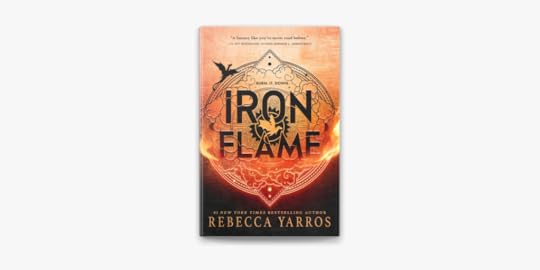
From a Google Image Search – Apple Books
Rebecca Yarros’ Empyrean Series will eventually have five books. So far, we have two. The first book was Fourth Wing. The second is called Iron Flame. The kingdom of Navarre has isolated itself from the rest of the known world and Basgiath College is not only running the kingdom (although there is king), training up the citizens who will protect the kingdom militarily, but they are also hiding something. Violet Sorrengail, whose mother is one of the administrators who run the college, is estranged from her mom. Violet is now in her second year, and she has been chosen by not just one dragon, but two, although she only rides one. She came in as a frail girl who barely passed the rigorous admissions tests and has become strong by building physical strength and by learning how to lean on other skills that make her extraordinary. The college trains foot soldiers (infantry), and the dragons train the riders, there are scribes who keep the history, and healers who mend the wounded.
Xaden Riorson is one of 104 children of a rebel group from another kingdom whose parents were executed. The children are marked with tattoos along one arm and Xaden was cut 104 times on his back by Violet’s mother to remind him that he is responsible for the others. Although he sets out to make Violet’s life at the college difficult because he thinks she is too weak to be there, she has opportunities to show him that she can keep a secret. She is also dangerously attracted to Xaden. A fantasy with a hot romance combines two genres that have plenty of fans. Readers will get very invested in the love blooming between these two.
The kingdom of Navarre is protected by wards that keep out enemies, but why are there enemies and who are they? Who is attacking the kingdoms on other continents where the wards have failed? Why are the college administrators so secretive about what is happening at the fringes of the kingdom? If the rebellion was quelled who are the enemies of Navarre? The riders sent to the fringes are battling flyers who seem to think that Navarre is their enemy. But something else is out there and Violet, who studied history with her father, knows what they are up against. She knows that the college administrators have hidden away books that would enlighten everyone, and perhaps show how to reactivate the failing and failed wards that used to keep evil away.
Is there such a thing as unconditional love? Violet and Xaden are about to find out, in the next book. You might be tempted to unlove this series but perhaps the author has points to make, and you might want to hang in to find out. Will the people of Navarre have to vanquish all their enemies, or will they find a way to unite all the world in utopian tolerance and keep the lovers together to bring joy to the new world? How will the dragons deal with the changes that they must internalize? This is a series that has readers on an emotional rollercoaster and that gives it value if you like to read for entertainment.
February 20, 2024
Fourth Wing by Rebecca Yarrow – Book
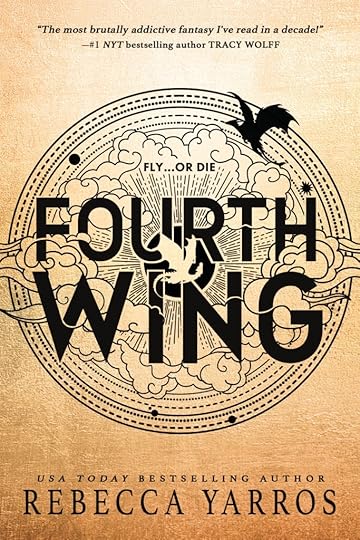
Sometimes taking a break from reading about weighty subjects is good for the brain. We might return to a genre that has given us pleasure in the past, in a novel that flies by, the passing of time forgotten. Fourth Wing by Rebecca Yarros promised to be just such a novel. It has been given a new genre classification, romantic fantasy. There are dragons, family intrigue, magic, power struggles, and love happening at a military college training kids to become soldiers to defend the kingdom. Some at the college are training to be infantry, some to be riders bonded to a dragon, some to be scribes to keep the books that record the history of Navarre, and some to be Healers.
Violet Sorrengail is the newest cadet to walk the Parapet to gain entry to this school that is headed by her estranged mother. Violet has a weak joint disease and was trained by her father to be a scribe, but she decides to become a rider, despite the challenges her fragile body presents. Violet surprises everyone, especially the wingleader, Xaden Riorson who would like to see her fail but is drawn to her by a powerful sexual attraction. Violet, although not training as a Scribe, realizes that something is wrong with the Basgiath College archives. Books are missing. Parts of the histories of Navarre have been lost or locked away. And the wards that guard Navarre’s borders are weakening or falling.
It takes a while to put together a group of true friends when you are in a new school. There is a lot of social power jockeying and close friendships emerge along with personal enemies. The power of friendship and love to align the forces of good against the forces of evil is part of any good fantasy world and the Empyrean is no exception. It is these friendships, sexual attractions, and love relationships that bond us to the characters in a fantasy, even the dragons, and it is the animosities, the evil plots that inspire us to read further to see what unfolds. We always hope that good will win, that our heroes will grow and add to their talents. Until George R. R. Martin this outcome was predictable. Not so much now.
This book is part of a projected series of fantasy books known as the Empyrean Series. Iron Flame is the second book in the series, but the last three books have not yet been written. If you like Nora Roberts and hot sex you may like Fourth Wing.

